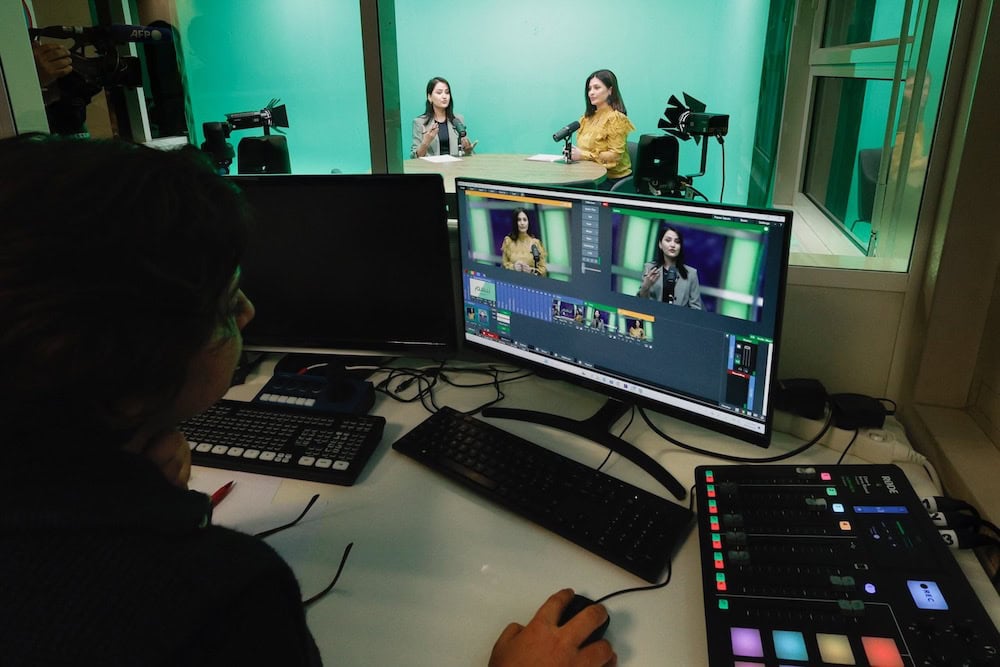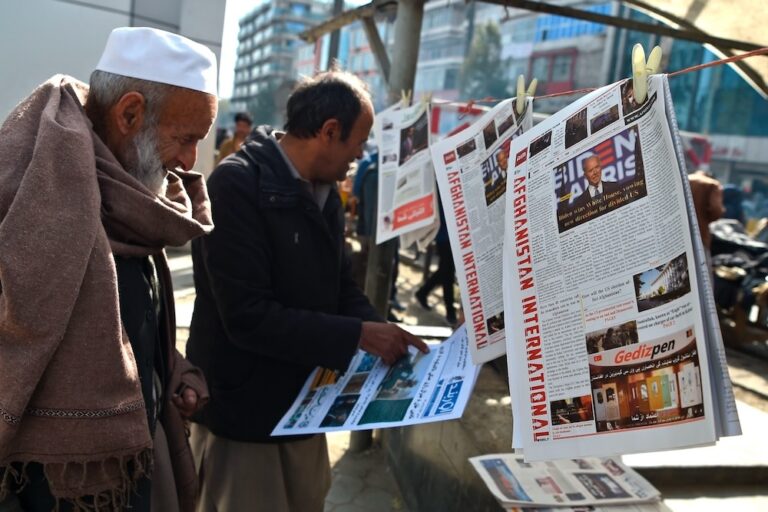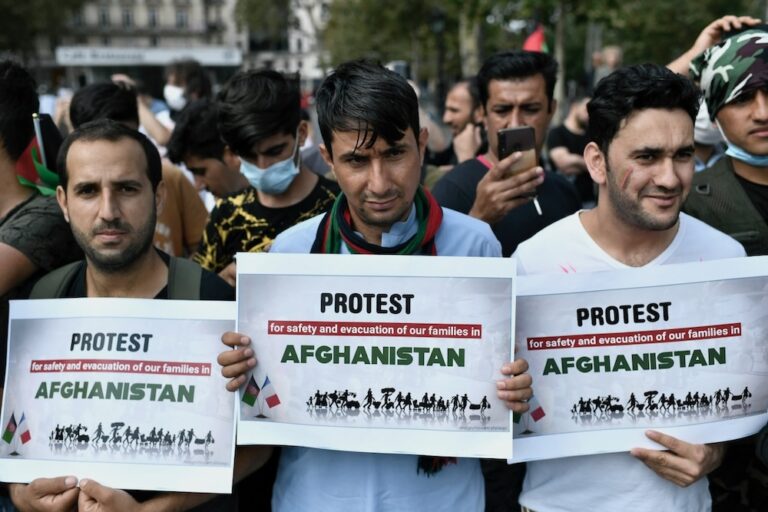Afghanistan Journalists Center said that it goes against the country's media laws as it called for the lifting of the boycott.
This statement was originally published on afjc.media on 9 May 2024.
The Taliban’s Ministry of Information and Culture has issued order for journalists and experts to avoid collaborating with Afghanistan International TV and Radio, threatening that doing so would be considered a criminal act. The Afghanistan Journalists Center (AFJC) has denounced the move, stating that it goes against the country’s media laws and calling for the restrictions on the media outlet to be lifted.
According to the Media Complaints and Rights Violations Commission, journalists, analysts, and experts have been prohibited from engaging in discussions or working with Afghanistan International’s London-based television and radio channels. Khubaib Ghufran, the spokesperson for the Ministry of Information and Culture, claimed that the station had violated professional standards and crossed moral and legal boundaries.
“At the commission’s meeting held on Wednesday May 8, it was decided that participation in discussions and facilitating the broadcast of this media outlet in public places is forbidden,” explained Ghufran.
He cited 10 reasons to avoid working with Afghanistan International TV and Radio, including its alleged distortion or falsification of information and campaigning against the Taliban government.
Afghanistan International TV, headquartered in London, is accessible through satellite, cable, and social media. The outlet was established after the fall of the republic government and the return of the Taliban to power in August 2021.
AFJC said: “We urge the Taliban to immediately revoke their ban on journalists cooperating with Afghanistan International and to allow Afghan citizens unrestricted access to the outlet without fear of retaliation.” “The Taliban must refrain from using the media complaints commission as a tool to enforce further censorship on Afghan news outlets and exiled media. These restrictions on freedom of information must be lifted promptly, and the commission must handle complaints in accordance with the country’s media regulations.”
Although the Ministry of Information and Culture claims that the commission for media complaints operates within the confines of the media law, it has been exploited as a means to suppress independent media. Despite the Taliban government acknowledging the media law as valid, it has not been put into practice. Instead, media directives are issued by the Taliban authorities, and journalists and media outlets are dealt with accordingly.
In April, the commission suspended the operations of two private TV stations in Kabul, Noor and Barya, citing their failure to adhere to “national and Islamic values.”
While the prohibition on collaborating with Afghanistan International Television and Radio has been officially announced, AFJC’s investigations reveal that the ban on engaging with exiled Afghan media is not a new phenomenon. This strategy has been quietly enforced over the past two years, with numerous journalists facing threats, imprisonment, or media outlets being shut down for failing to comply with these directives.



